- Home
- Jack Kerouac
Desolation Angels: A Novel Page 5
Desolation Angels: A Novel Read online
Page 5
Round about midnight I’ve been staring so intently out the window dark I get hallucinations of fires everywhere and near, three of them right in Lightning Creek, phosphorescent orange faint verticals of ghost fire that come and go in my swarming electrified eyeballs—The storm keeps lulling then sweeping around somewhere in the void and hitting my mount again, so finally I fall asleep—Wake to the patter of rain, gray, with hope silver-holes in the skies to my south—there at 177° 16′ where I saw the big fire I see a strange brown patch in the general snowy rock showing where the fire raged and spitted out in the allnight rain—Around Lightning and Cinammon no sign of lastnight ghost-fires—Fog seeps, rain falls, the day is thrilling and exciting and finally at noon I feel the raw white winter of the North sweeping from a Hozomeen wind, the feel of Snow in the air, iron gray and steel blue everywhere the rocks—“My, but she was yar!” I keep yelling as I wash my dishes after a good a delicious pancake breakfast with black coffee.
The days go—
they cant stay—
I dont realize
I think this as I draw a ring around August 15 on the calendar and look, it’s already 11:30 on the clock and so the day half over—With a wet rag in the yard I wipe the summer’s dust off my ruined shoes, and pace and think—The hinge of the outhouse door is loose, the chimney piece is knocked over, I’ll have to wait a month for a decent bath, and I dont care—The rain returns, all the fire’s’ll lose their tinder—In my dreams I dream that I have controverted some wish of Cody’s wife Evelyn concerning their daughter, on some sunny barge house in sunny Frisco, and she gives me the dirtiest look in the history of hate and sends me an electrical bolt that sends a wave of shock into my gut but I’m determined not to be afraid of her and stick by my ideas and go on calmly talking from my chair—It’s the same barge where my mother’d entertained the Admirals in an old dream—Poor Evelyn, she hears me agree with Cody that it was silly of her to give the only floor lamp to the Bishop, over her dishes her heart pounds—Poor human hearts pounding everywhere.
29
That rainy afternoon, according to a promise I made myself owing to the memory of a wonderful Chinese rice dish Jarry’d cooked up for us in the Mill Valley shack in April, I make a crazy Chinese sweet and sour sauce on the hot stove, compounded of turnip greens, sauerkraut, honey, molasses, red wine vinegar, pickled beet juice, sauce concentrate (very dark and bitter) and as it boils on the stove and the little rice pot makes the lid dance I pace in the yard and say “Chinee dinner alway velly good!” and remember in a rush my father and Chin Lee in Lowell, I see the redbrick wall outside the windows of the booths of the restaurant, scent rain, rain of redbrick and Chinese dinners unto San Francisco across the lonesome rains of the plains and mountains, I remember raincoats and smiling teeth, it’s a vast inevitable vision with poor misguided hand of—of fog—sidewalks, or cities, of cigar smoke and paying at the counter, of the way Chinese Chefs always scoop up a round ladleful of rice from the big pot and bring the little China bowl up to the inverted ladle and dump in leaving a round globe of steaming rice that is brought to you in your booth along with those insanely fragrant sauces—“Chinee dinner alway velly good”—and I see generations of rain, generations of white rice, generations of redbrick walls with the old-fashioned red neon flashing on it like warm compost of brick-dust fire, ah the sweet indescribable verdurous paradise of pale cockatoos and yocking mongrels and old Zen Nuts with staffs, and flamingos of Cathay, that you see on their marvelous Ming Vases and those of other duller dynasties—Rice, steaming, the smell of it so rich and woody, the look of it as pure as driven lakevalley clouds on a day like this one of the Chinee dinner when wind pusheth them rilling and milkying over stands of young fir, towards raw wet rock—
30
I dream of women, women in slips and in slipshod garments, one sitting next to me coyly moving my limp hand from her spot in the soft roll of flesh but even tho I make no effort one way or the other the hand stays there, other women and even aunts are watching—At one point that awful haughty bitch who was my wife is walking away from me to the toilet, sniffy, saying something nasty, I look at her slim ass—I’m a regular fool in pale houses enslaved to lust for women who hate me, they lay their bartering flesh all over the divans, it’s one fleshpot—insanity all of it, I should forswear and chew em all out and go hit the clean rail—I wake up glad to find myself saved in the wilderness mountains—For that lumpy roll flesh with the juicy hole I’d sit through eternities of horror in gray rooms illuminated by a gray sun, with cops and alimoners, at the door and the jail beyond?—It’s a bleeding comedy—The Great Wise Stages of pathetic understanding that characterize the Greater Religion elude me when it comes to harems—Harem-scarem, it’s all in heaven now—bless their all their bleating hearts—Some lambs are female, some angels have woman-wings, it’s all mothers in the end and forgive me for my sardony—excuse me for my rut.
(Hor hor hor)
31
August 22 is such a funny date in my life, it was (for several years) the climactic (for some reason) day on which my biggest handicaps and derbies were run in the Turf I conducted as a child in Lowell, the racing marbles—It was also the Augustcool end of summer, when trees of starry nights swished with a special richness outside my screen window and when the sand of the bank got cool to the touch and little clamshells glistened therein and across the face of the moon the Shadow of Doctor Sax flew—Mohican Springs racetrack was a special raw western Massachusetts misty track with cheaper purses and older railbirds and hardboots and seasoned horses and grooms from East Texas and Wyoming and old Arkansas—In the Spring it ran the Mohican Derby which was for plugs of age three usually but the big ’Cap of August was a hoi polloi event that had the best society of Boston and New York flocking and it was then Ah then that the summer being over, the results of the race, the name of the winner, would have an Autumn flavor like the flavor of the apples now begathered in baskets of the Valley and the flavor of cider and of tragic finality, with the sun going down over the old stalls of Mohican on the last warm night and now the moon’s shining sadfaced through the first iron and massed concentrates of Fall cloud and soon it will be cold and all done—.
Dreams of a kid, and this whole world is nothing but a big sleep made of reawakened material (soon to reawake)—What could be more beautiful—
To complete, cap, and tragedize my August 22, it was upon that date, the day Paris was liberated in 1944, that I was let out of jail for 10 hours to marry my first wife in a hot New York afternoon around Chambers Street, complete with bestman detective with holstered gun—how far the cry from sad-side-pensive Ti Pousse with his migs, his carefully printed Mohican Springs entries, his innocent room, to the rugged evil-looking seaman in tow of a policeman being married in a judge’s chamber (because the D.A. thought the fiancée to be pregnant)—Far cry, I was so degraded in level in that time, that August month, my father wouldnt even talk to me let alone bail me out—Now the August moon shines through ragged new clouds that are not Augustcool but Augustcold and Fall is in the look of the firs as they silhouette to the far-down lake at after-dusk, the sky all snow silver and ice and breathing fog of frost, it will soon be over—Fall in the Skagit Valley, but how can I ever forget even madder Fall in the Merrimac Valley where it would whip the silver ooing moon with slavers of cold mist, smelling of orchards, and tar rooftops with night-ink colors that smelled as rich as frankincense, woodsmoke, leafsmoke, river rain, the smell of the cold on your kneepants, the smell of doors opening, the door of Summer’s opened and let in brief glee-y fall with his apple smile, behind him old sparkly winter hobbles—The tremendous secrecy of alleys between houses in Lowell on the first Fall nights, as though amens were falling by the sisters in there—Indians in the mouths of trees, Indians in the sole of earth, Indians in the roots of trees, Indians in the clay, Indians in there—Something shoots by fast, no bird—Canoe paddles, moonlit lake, wolf on the hill, flower, loss—Woodpile, barn, horse, rail, fence, boy,
ground—Oil lamp, kitchen, farm, apples, pears, haunted houses, pines, wind, midnight, old blankets, attic, dust—Fence, grass, tree trunk, path, old withered flowers, old corn husks, moon, colorated clouts of cloud, lights, stores, road, feet, shoes, voices, windows of stores, doors opening and closing, clothes, heat, candy, chill, thrill, mystery—
32
As far as I can see and as I am concerned, this so-called Forest Service is nothing but a front, on the one hand a vague Totalitarian governmental effort to restrict the use of the forest to people, telling them they cant camp here or piss there, it’s illegal to do this and you’re allowed to do that, in the Immemorial Wilderness of Tao and the Golden Age and the Millenniums of Man—secondly it’s a front for the lumber interests, the net result of the whole thing being, what with Scott Paper Tissue and such companies logging out these woods year after year with the “cooperataion” of the Forest Service which boasts so proudly of the number of board feet in the whole Forest (as if I owned an inch of a board altho I cant piss here nor camp there) result, net, is people all over the world are wiping their ass with the beautiful trees—As for lightning and fires, who, what American individual loses, when a forest burns, and what did Nature do about it for a million years here up to now?—And in that mood I lie on my bunk in the moonlit night on my stomach and contemplate the bottomless horror of the world, from that worst of all spots in the world, a set of streets in Richmond Hill beyond Jamaica Avenue just northwest of Richmond Hill Center I’d guess where one hot summer-night when Ma (1953) was visiting Nin in the south I was walking and suddenly because completely depressed almost to match the depression-walk I had the night before my father died, and in those streets one winter night I called Madeleine Watson on the phone to make a date with her to see if she was going to marry me, a kind of fit of madness like I’m subject to, I really am a “madman bum and angel”—realizing that there is no place on earth where that bottomless horror can be dispelled (Madeleine was surprised, scared, said she had a steady boy friend, must still be wondering these years later why I called or what’s the matter with me) (or maybe she secretly loves me) (I just saw her face in a vision, in the bed beside me, those tragic beautiful dark Italian lines of her face so streakable of tears, so kissable, firm, lovely, like I like)—thinking, even if I lived in New York, bottomless horror of palefaced pockmarked television actors in smorgasbords wearing thin silver ties and the utterest dismality of all the windswept apartments of Riverside Drive and the Eighties where they always live or cold January dawn on Fifth Avenue with the garbage cans all neatly lined near the incinerators in the courtyard, cold hopeless in fact malicious-minded rose in the skies above clawy trees of Central Park, no place to rest or warm up because you aint a millionaire and even if you were nobody’d care—Bottomless horror of the moon shining on Ross Lake, the firs that cant help you—Bottomless horror of Mexico City in the pine trees of the hospital grounds and the overworked Indian children at the market stalls Saturday night awfully late—Bottomless horror of Lowell with the Gypsies in empty stores on Middlesex Street and the hopelessness stretching over that to the mainline rail of the B & M Railroad cut by Princeton Boulevard where trees that dont care for you grow by a river of no-concern—Bottomless horror of Frisco, the streets of North Beach on a foggy Monday morning and the dontcare Italians buying cigars on the corner or just staring or old paranoiac Negroes who take you to be insulting them or even nutty intellectuals taking you to be an FBI man and avoiding you in the gruesome wind—the white houses with empty big windows, the telephones of hypocrites—Bottomless horror of North Carolina, the little redbrick alleys after the movie on a winter night, the small towns of the South in January—agh, in June—June Evans dead after a lifetime of irony, is right, her unknown grave leers at me in the moonlight telling that all is right, right damnable, right got rid of—Bottomless horror of Chinatown at dawn when they slam garbage pails and you pass drunk and disgusted and shamed—Bottomless horror everywhere, I can picture Paris almost, the Poujadists pissing off the quai—Sad understanding is what compassion means—I resign from the attempt to be happy. It’s all discrimination anyway, you value this and devalue that and go up and down but if you were like the void you’d only stare into space and in that space though you’d see stiffnecked people in their favorite various displaytory furs and armors sniffing and miffed on benches of this one-same ferryboat to the other shore you’d still be staring into space for form is emptiness, and emptiness is form—O golden eternity, these simperers in your show of things, take them and slave them to your truth that is forever true forever—forgive me my human floppings—I think therefore I die—I think therefore I am born—Let me be void still—Like a happy child lost in a sudden dream and when his buddy addresses him he doesnt hear, his buddy nudges him he doesnt move; finally seeing the purity and truth of his trance the buddy watches in wonder—you can never be that pure again, and jump out of such trances with a happy gleam of love, being an angel in the dream
33
A little interplay on the lookout radio one morning brings a laugh and a memory—it’s clean early sunlight, 7 A.M., and you hear: “How 30 ten eight for the day. How 30 clear.” Meaning station number 30 is on the air for the day. Then:—“How 32 also ten-eight for the day,” right after it. Then:—“How 34, ten eight.” Then:—“How 33, ten seven for ten minutes.” (Off the air for ten minutes.) “Afternoon, men.”
And said in that bright early morning wry voice of college boys, I see them on campuses in the mornings of September with their fresh cashmere sweaters and fresh books crossing dewy swards and making jokes just like that, their pearly faces and pristine teeth and smooth hair, you’d think youth were nothing but this kind of lark and nowhere in the world any grubby bearded youths grumbling in wood shacks and hauling water with a flatulent comment—no, just fresh sweet youngsters with fathers who are dentists and successful retired professors walking longstrided and light and glad across primordial lawns towards interesting dark shelves of college libraries—aw hell who cares, when I was a college boy myself I slept till 3 P.M. and set a new record at Columbia for cutting classes in one semester and am still haunted by dreams of it where finally I’ve forgotten what classes they were and the identities of the professors and instead I wander forlornly like a tourist among the ruins of the Colosseum or the Pyramid of the Moon among vast 100-foot-high shelled haunted abandoned buildings that are too ornate and too ghostly to contain classes—Well, little alpine firs at 7 A.M. dont care about such things, they just exude dew.
34
October is always a great time for me (knock on wood), ’s why I always talk about it so much—The October of 1954 was a wild quiet one, I remember the old corncob I started smoking that month (living in Richmond Hill with Ma) staying up late-a-nights writing one of my careful prose (deliberate prose) attempts to delineate Lowell in its entirety, brewing café-au-lait in the midnights with hot milk and Nescafé, finally taking a bus trip to Lowell, with my fragrant pipe, the way I strolled around those haunted streets of birth and boyhood puffing on it, eating red firm Macintosh apples, wearing my Japanese-made plaid shirt with the white and deep brown and deep orange designs, under a pale blue jacket, with my white crepesole shoes (black foamsole) making all the Siberian-drab residents of Centerville stare at me making me realize that what was an ordinary outfit in New York was dazzling and even effeminate in Lowell, tho my pants were just dumpy old brown corduroys—Yes, brown corduroys and red apples, and my corncob pipe and big sack of tobacco stuffed in pocket, not inhaling then but just puffing, walking and kicking the gutter-deep leaves as of yore as I’d done at four, October in Lowell, and those perfect nights in my Skid Row hotel room there (Depot Chambers near the old depot) with my complete Buddhist or rather reawakened understanding of this dream this world—a nice October, ending with the ride back to New York through leafy towns with white steeples and the old sere brown New England earth and young luscious college girls in front of the bus, arriving Manhattan at 10 P.M
. on a glittery Broadway and I buy a pint of cheap wine (port) and walk and drink and sing (slugging in excavations on 52nd Street and in doors) till on Third Avenue who do I pass on the sidewalk but Estella my old flame with a party of people including her new husband Harvey Marker (author of Naked and the Doomed) so I just dont even look but downstreet I turn just as they turn, curious lookings, and I dig the wildness of the New York streets, thinking: “Gloomy old Lowell, just as well we left it, look how the people in New York are on a perpetual carnival and holiday and Saturday Night of revel—what else do in this hopeless void?” And I stride to Greenwich Village and go in the Montmartre (hepcat) bar high and order a beer in the dim light full of Negro intellectuals and hipsters and junkies and musicians (Allen Eager) and next to me is a Negro kid with a beret who says to me “What do you do?”
“I am the greatest writer in America.”
“I am the greatest jazz pianist in America,” says he, and we shake on it, drink to it, and at the piano he whangs me strange new chords, crazy atonal new chords, to old jazz tunes—Little Al the waiter pronounces him great—Outside it’s October night in Manhattan and on the waterfront wholesale markets there are barrels with fires left burning in them by the longshoremen where I stop and warm my hands and take a nip two nips from the bottle and hear the bvoom of ships in the channel and I look up and there, the same stars as over Lowell, October, old melancholy October, tender and loving and sad, and it will all tie up eventually into a perfect posy of love I think and I shall present it to Tathagata my Lord, to God, saying “Lord Thou didst exult—and praised be You for showing me how You did it—Lord now I’m ready for more—And this time I wont whine—This time I’ll keep my mind clear on the fact that it is Thy Empty Forms.”

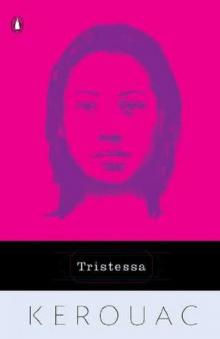 Tristessa
Tristessa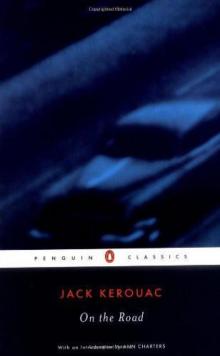 On the Road
On the Road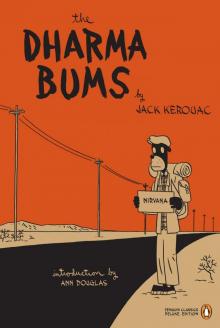 The Dharma Bums
The Dharma Bums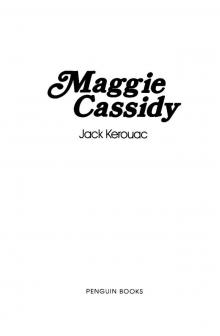 Maggie Cassidy
Maggie Cassidy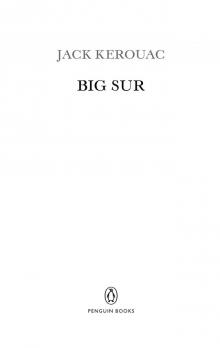 Big Sur
Big Sur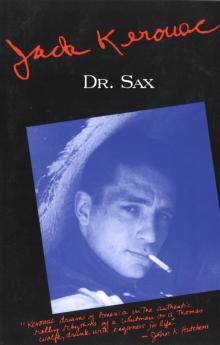 Dr. Sax
Dr. Sax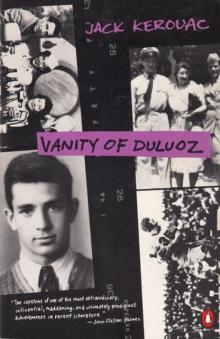 Vanity of Duluoz: An Adventurous Education, 1935-46
Vanity of Duluoz: An Adventurous Education, 1935-46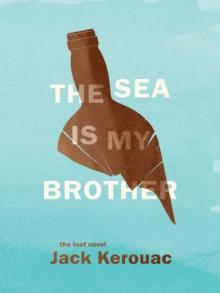 The Sea Is My Brother
The Sea Is My Brother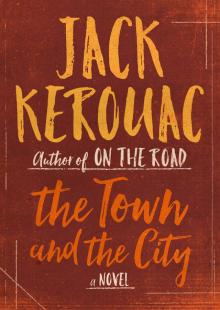 The Town and the City: A Novel
The Town and the City: A Novel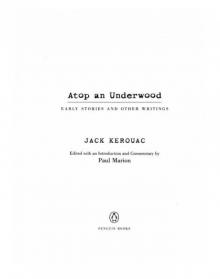 Atop an Underwood: Early Stories and Other Writings
Atop an Underwood: Early Stories and Other Writings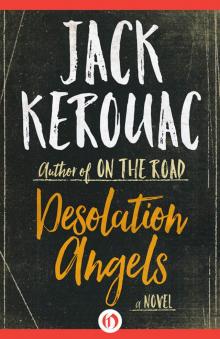 Desolation Angels: A Novel
Desolation Angels: A Novel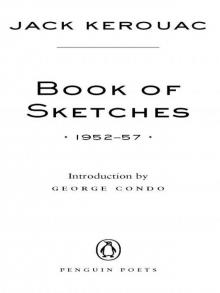 Book of Sketches
Book of Sketches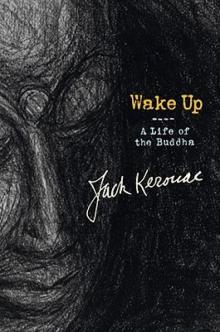 Wake Up: A Life of the Buddha
Wake Up: A Life of the Buddha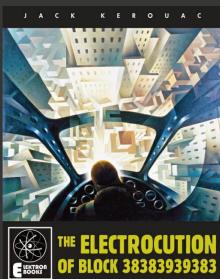 The Electrocution of Block 38383939383
The Electrocution of Block 38383939383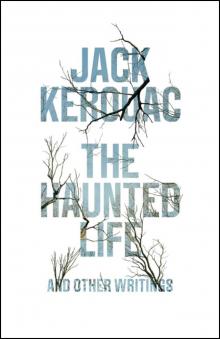 Haunted Life
Haunted Life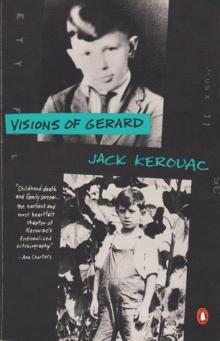 Visions of Gerard
Visions of Gerard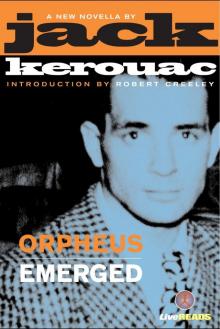 Orpheus Emerged
Orpheus Emerged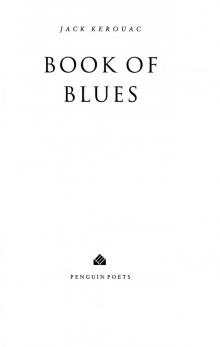 Book of Blues
Book of Blues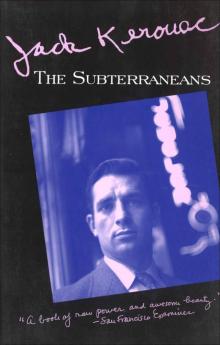 The Subterraneans
The Subterraneans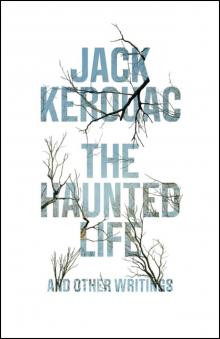 The Haunted Life
The Haunted Life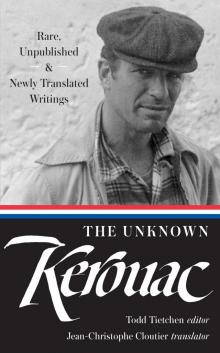 The Unknown Kerouac
The Unknown Kerouac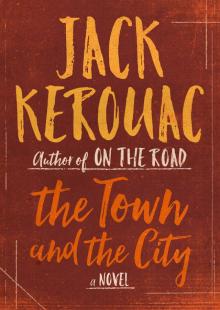 The Town and the City
The Town and the City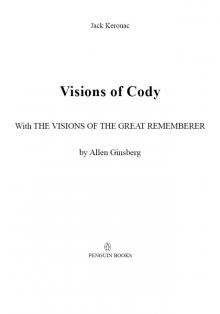 Visions of Cody
Visions of Cody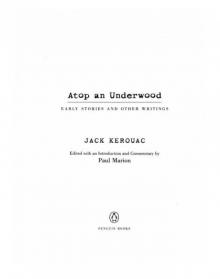 Atop an Underwood
Atop an Underwood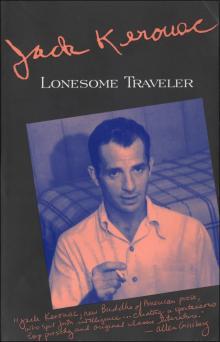 Lonesome Traveler
Lonesome Traveler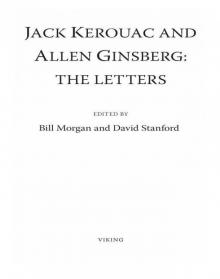 Jack Kerouac and Allen Ginsberg
Jack Kerouac and Allen Ginsberg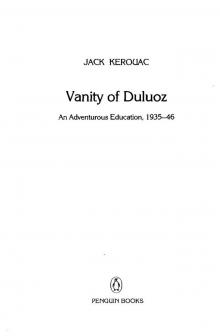 Vanity of Duluoz
Vanity of Duluoz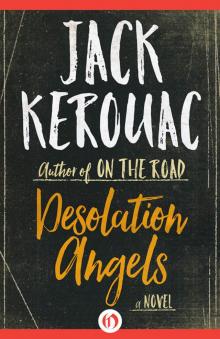 Desolation Angels
Desolation Angels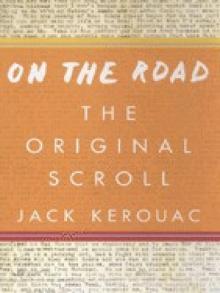 On the Road: The Original Scroll: (Penguin Classics Deluxe Edition)
On the Road: The Original Scroll: (Penguin Classics Deluxe Edition)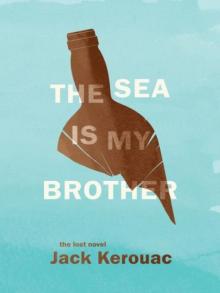 The Sea Is My Brother: The Lost Novel
The Sea Is My Brother: The Lost Novel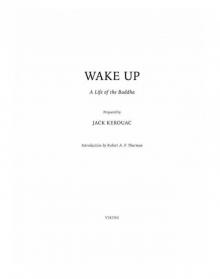 Wake Up
Wake Up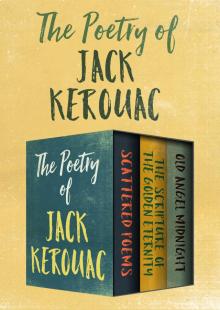 The Poetry of Jack Kerouac
The Poetry of Jack Kerouac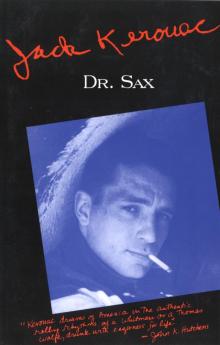 Doctor Sax
Doctor Sax